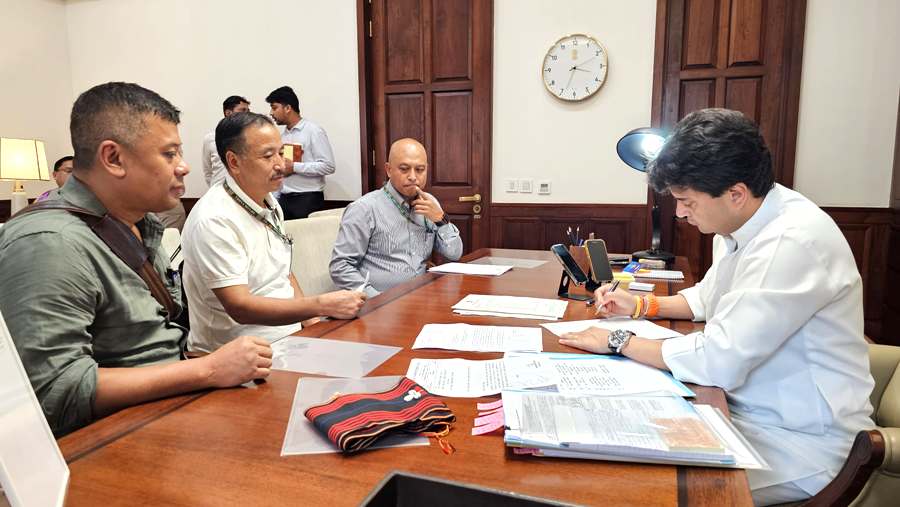MP Supongmeren Jamir meets Union ministers to raise concerns over Nagaland’s delayed infrastructure, poor mobile connectivity, and renewable energy challenges.
Share

DIMAPUR — In a bid to address long-standing infrastructure and energy challenges facing Nagaland and the broader Northeast region, S Supongmeren Jamir, Lok Sabha Member of Parliament from Nagaland, called on two Union ministers in New Delhi on July 27 and 28.
A press release issued by Nagaland Pradesh Congress Committee (NPCC) informed that on July 27, Supongmeren met with Jyotiraditya Scindia, Union Minister for Development of North Eastern Region (DoNER), where he highlighted issues delaying key infrastructure projects.
Chief among these was the slow progress of the 4-lane highway project between Dimapur and Kohima, despite a revised completion deadline set for September 28, 2025. The MP urged the minister to deploy a high-level committee for on-ground verification to ensure timely execution of the project.
He also raised concerns regarding poor mobile connectivity in the region, citing discrepancies between reported achievements and ground realities. Many villages in Nagaland remain without network access despite official claims of 100% coverage.
He further noted the incomplete construction of mobile towers and deficiencies in BSNL's infrastructure, including unsecured assets and inadequate staff accommodations.
Also read: Nagaland reviews stalled projects under Ministry of DoNER and North Eastern Council
In a separate meeting on July 28, Jamir submitted a memorandum to Pralhad Joshi, Union Minister for New and Renewable Energy, Consumer Affairs, and Food & Public Distribution.
The MP highlighted the absence of dedicated central funding for hydropower development and the sudden discontinuation of the off-grid solar programme that had begun gaining momentum in the state. He called for the reintroduction of solar streetlights, home lighting systems, and solar power packs to meet rural energy needs.
Recognising the unique challenges posed by Nagaland’s topography, he advocated for small wind turbine schemes suitable for hilly terrains and the creation of a ‘Green Energy Corridor’ to overcome transmission infrastructure gaps.
Additionally, he urged the Centre to incentivise private sector participation through subsidies, GST waivers, and tax holidays to counter high project costs and logistical difficulties.
He maintained that while Nagaland has made commendable efforts towards sustainability, robust policy support and region-specific schemes from the Centre are crucial for the state’s transition to energy security and inclusive development.
Read more: GNF, UNPO raise Naga rights concerns at UN Indigenous forum